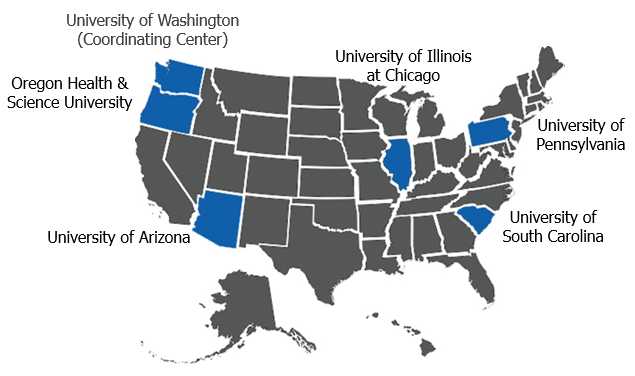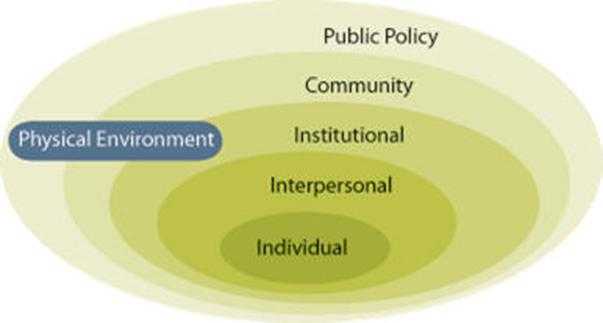CDC’s Healthy Brain Research Network

The Healthy Brain Research Network (HBRN), a Thematic Network of the Prevention Research Centers (PRC) Program [PDF-1M], was established to address two growing public health challenges: promoting cognitive health and addressing the needs of older Americans living with cognitive impairment and their caregivers. The network’s efforts are guided by the CDC’s Healthy Brain Initiative: The Public Health Road Map for State and National Partnerships, 2013–2018 [PDF – 2 MB].
The network comprises of six leading academic institutions around the United States:
- University of Washington Health Promotion Research Center (Coordinating Center)
- Oregon Health and Science University Center for Healthy Communities
- University of Arizona Prevention Research Center
- University of Illinois at Chicago Prevention Research Center (added this academic institution)
- University of Pennsylvania Prevention Research Center
- University of South Carolina Prevention Research Center

The mission of the Healthy Brain Research Network:
- Establish and advance a public health research, translation, and dissemination agenda that promotes cognitive health and healthy aging, addresses cognitive impairment, and helps meet the needs of care partners.
- Build a strong evidence-base for policy, communication, and programmatic interventions.
- Collaborate with public health agencies and their partners to accelerate effective practices in states and communities.
- Build the capacity of public health professionals through training opportunities.
Activities include the following:
- Analyzing cognitive decline and caregiving data including the Behavioral Risk Factor Surveillance System (BFRSS).
- Developing and testing culturally relevant messages about cognitive health.
- Training National HBRN scholars.
- Conducting systematic reviews of emerging cognitive aging research.
- Providing technical assistance to states developing and implementing Alzheimer’s disease and related dementia action plans.
Approach
HRBN activities will be guided by a social ecological approach and aimed toward increasing the capacity of public health agencies and their partners to implement actions within the Road Map. Working together, the network will support fellowships within its collaborating universities/centers and create unique national networking opportunities across its campus-community partnerships.

- Page last reviewed: May 11, 2017
- Page last updated: May 11, 2017
- Content source:


 ShareCompartir
ShareCompartir